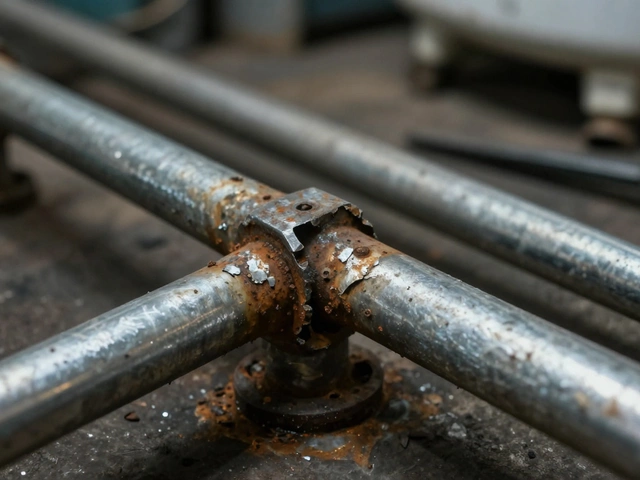Understanding Laptop Repair Costs: What You Need to Know
December 6 2024Fan Maintenance: Simple Steps to Keep Your Extractor Fans Working
Ever wonder why your kitchen fan smells musty or your bathroom fan makes a loud hum? Most of the time it's just a lack of routine care. Keeping extractor fans clean and checked doesn’t take much time, but it saves you from costly repairs and helps your home stay fresh.
Why Regular Fan Maintenance Matters
Fans move moist air, steam, and cooking fumes out of your house. When grease, dust, or lint builds up, the motor has to work harder. That extra strain can overheat the motor, shorten the fan’s lifespan, and raise your electricity bill. A dirty fan also reduces airflow, which means more condensation in the bathroom and more lingering smells in the kitchen.
Besides efficiency, a well‑maintained fan improves indoor air quality. Mold thrives in damp, stagnant areas. By clearing the vent and filter, you cut down the chances of mold growing behind the fan housing. In short, a quick clean every few months keeps the fan quiet, efficient, and safe.
Simple Steps to Clean and Service Your Fans
1. Turn off power. Before you start, switch off the circuit breaker or unplug the fan. This protects you from electric shock and stops the motor from accidentally starting.
2. Remove the cover. Most extractor fans have a snap‑on or screw‑on grille. Gently pop it off and set it aside. If it’s greasy, soak the cover in warm, soapy water for 10‑15 minutes, then rinse and dry.
3. Clean the filter. Metal or carbon filters can be rinsed under running water. Use a soft brush to scrub away stubborn grease. For carbon filters that smell, replace them – they’re cheap and improve odor removal.
4. Vacuum the interior. With a low‑speed brush attachment, pull out dust from the fan blades and housing. If you see oily film on the blades, wipe them with a damp cloth and a few drops of mild detergent.
5. Check the motor and wiring. Look for any loose wires, corrosion, or burnt spots. Tighten any loose screws and wipe away moisture with a dry cloth. If the motor hums but doesn’t spin, it may need professional service.
6. Reassemble and test. Put the cover back, restore power, and run the fan. You should hear a smoother, quieter operation. If the fan still struggles, it’s time to call a qualified gas engineer or electrician.
Doing this routine every 3‑4 months for kitchen fans and every month for bathroom fans keeps performance high. For heavy‑use kitchens, a monthly clean is worth it – grease builds fast.
Remember, if you ever feel unsure about electrical work, don’t risk it. A certified professional can safely inspect the motor, replace worn bearings, or fix wiring issues. Regular professional checks, especially for older fans, add another layer of safety.
Bottom line: a quick power‑off, cover removal, and a little scrubbing go a long way. Your fans stay quiet, efficient, and you avoid nasty smells or mold. Set a reminder on your phone, and you’ll never wonder why the fan stopped working again.
 5 Dec
5 Dec
Step-by-Step Guide to Servicing Your Extractor Fan Efficiently
Extractor fans are an essential part of maintaining good air quality and reducing moisture in areas like kitchens and bathrooms. Regular maintenance can prevent a build-up of grime and ensure that the fan runs efficiently. This article provides a comprehensive guide on how to service an extractor fan, including cleaning, identifying issues, and performing minor repairs. With practical tips and best practices, homeowners can keep their fans running smoothly and extend their lifespan.
Read More...



